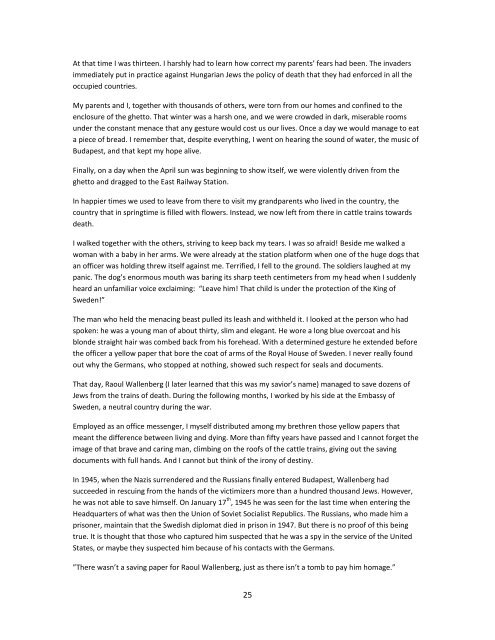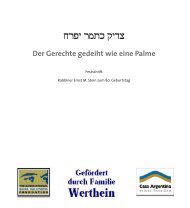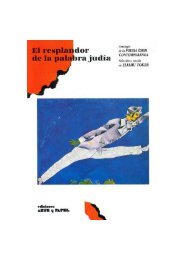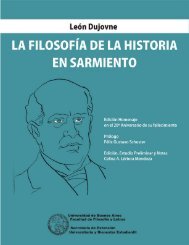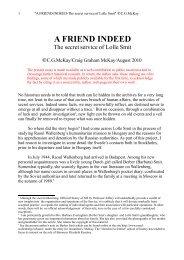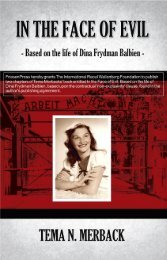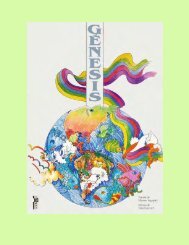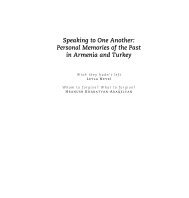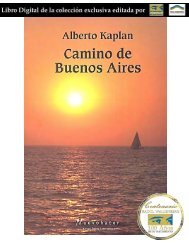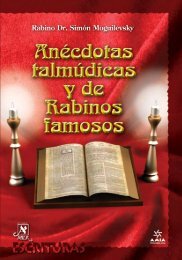We were There - The International Raoul Wallenberg Foundation
We were There - The International Raoul Wallenberg Foundation
We were There - The International Raoul Wallenberg Foundation
Create successful ePaper yourself
Turn your PDF publications into a flip-book with our unique Google optimized e-Paper software.
At that time I was thirteen. I harshly had to learn how correct my parents’ fears had been. <strong>The</strong> invaders<br />
immediately put in practice against Hungarian Jews the policy of death that they had enforced in all the<br />
occupied countries.<br />
My parents and I, together with thousands of others, <strong>were</strong> torn from our homes and confined to the<br />
enclosure of the ghetto. That winter was a harsh one, and we <strong>were</strong> crowded in dark, miserable rooms<br />
under the constant menace that any gesture would cost us our lives. Once a day we would manage to eat<br />
a piece of bread. I remember that, despite everything, I went on hearing the sound of water, the music of<br />
Budapest, and that kept my hope alive.<br />
Finally, on a day when the April sun was beginning to show itself, we <strong>were</strong> violently driven from the<br />
ghetto and dragged to the East Railway Station.<br />
In happier times we used to leave from there to visit my grandparents who lived in the country, the<br />
country that in springtime is filled with flowers. Instead, we now left from there in cattle trains towards<br />
death.<br />
I walked together with the others, striving to keep back my tears. I was so afraid! Beside me walked a<br />
woman with a baby in her arms. <strong>We</strong> <strong>were</strong> already at the station platform when one of the huge dogs that<br />
an officer was holding threw itself against me. Terrified, I fell to the ground. <strong>The</strong> soldiers laughed at my<br />
panic. <strong>The</strong> dog’s enormous mouth was baring its sharp teeth centimeters from my head when I suddenly<br />
heard an unfamiliar voice exclaiming: “Leave him! That child is under the protection of the King of<br />
Sweden!”<br />
<strong>The</strong> man who held the menacing beast pulled its leash and withheld it. I looked at the person who had<br />
spoken: he was a young man of about thirty, slim and elegant. He wore a long blue overcoat and his<br />
blonde straight hair was combed back from his forehead. With a determined gesture he extended before<br />
the officer a yellow paper that bore the coat of arms of the Royal House of Sweden. I never really found<br />
out why the Germans, who stopped at nothing, showed such respect for seals and documents.<br />
That day, <strong>Raoul</strong> <strong>Wallenberg</strong> (I later learned that this was my savior’s name) managed to save dozens of<br />
Jews from the trains of death. During the following months, I worked by his side at the Embassy of<br />
Sweden, a neutral country during the war.<br />
Employed as an office messenger, I myself distributed among my brethren those yellow papers that<br />
meant the difference between living and dying. More than fifty years have passed and I cannot forget the<br />
image of that brave and caring man, climbing on the roofs of the cattle trains, giving out the saving<br />
documents with full hands. And I cannot but think of the irony of destiny.<br />
In 1945, when the Nazis surrendered and the Russians finally entered Budapest, <strong>Wallenberg</strong> had<br />
succeeded in rescuing from the hands of the victimizers more than a hundred thousand Jews. However,<br />
he was not able to save himself. On January 17 th , 1945 he was seen for the last time when entering the<br />
Headquarters of what was then the Union of Soviet Socialist Republics. <strong>The</strong> Russians, who made him a<br />
prisoner, maintain that the Swedish diplomat died in prison in 1947. But there is no proof of this being<br />
true. It is thought that those who captured him suspected that he was a spy in the service of the United<br />
States, or maybe they suspected him because of his contacts with the Germans.<br />
”<strong><strong>The</strong>re</strong> wasn’t a saving paper for <strong>Raoul</strong> <strong>Wallenberg</strong>, just as there isn’t a tomb to pay him homage.”<br />
25


